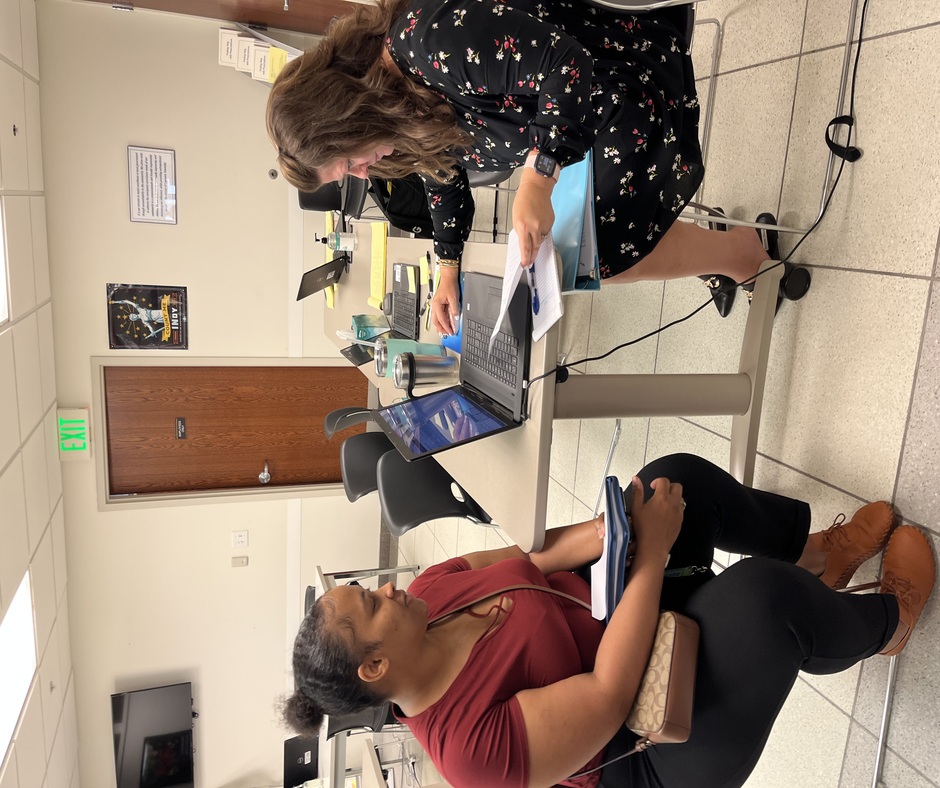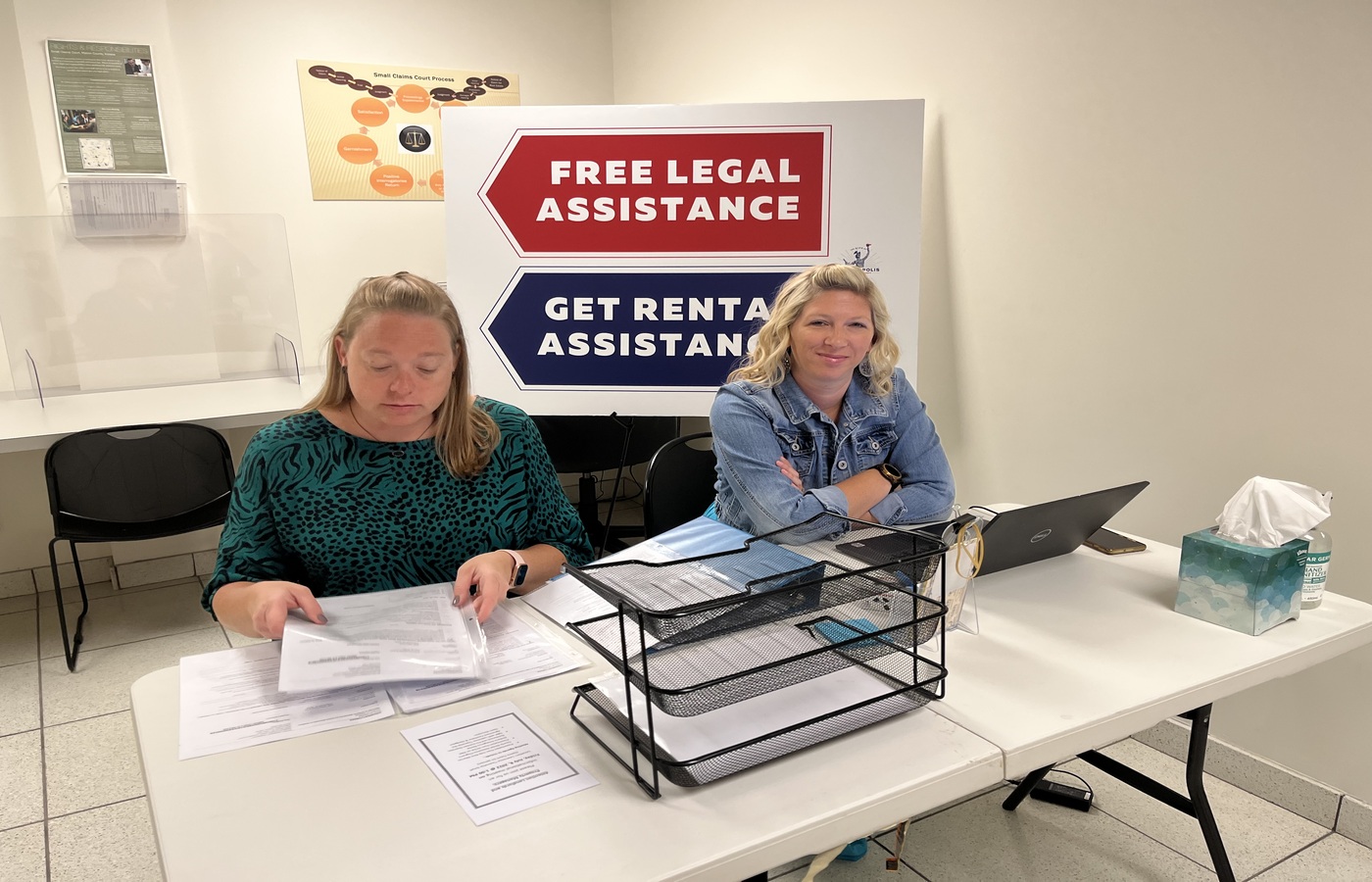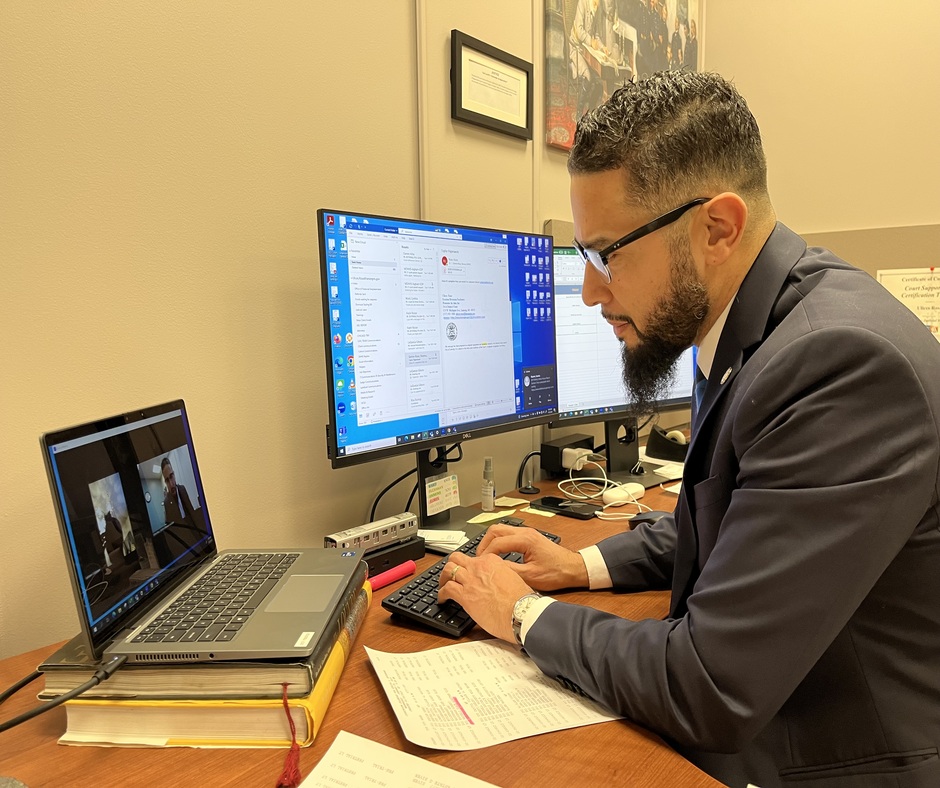May 3, 2023
By Samira Nazem
After a brief respite during the pandemic, evictions are back. Across the country, eviction filing rates have returned to or exceeded pre-pandemic levels as state and local emergency tenant protections have expired and federal rental assistance funding has subsided. State courts must now respond to this growing crisis.
 NCSC's Eviction Diversion Initiative is at the forefront of this work, providing courts with grant funding and technical assistance to design and implement eviction diversion programs that focus on holistic solutions to housing problems. Each program is structured differently, a reflection of the diverse court systems and communities in which they operate. However, each program shares the same goal of using the eviction court process to connect landlords and tenants with the time, information, and resources to resolve housing problems in the least harmful way. The examples below illustrate.
NCSC's Eviction Diversion Initiative is at the forefront of this work, providing courts with grant funding and technical assistance to design and implement eviction diversion programs that focus on holistic solutions to housing problems. Each program is structured differently, a reflection of the diverse court systems and communities in which they operate. However, each program shares the same goal of using the eviction court process to connect landlords and tenants with the time, information, and resources to resolve housing problems in the least harmful way. The examples below illustrate.
Las Vegas Justice Court: integrating services directly into the court process
The Las Vegas Justice Court’s eviction diversion program uses a problem-solving court model to resolve both the immediate legal dispute and the underlying issues that may have precipitated it. After filing an appearance, tenants are invited to participate in the court’s diversion program which integrates rental assistance, rehousing services, financial counseling, mediation, job training and placement, and ongoing case management to put tenants on the path toward long-term housing and financial stability. By centralizing resources within the court, the program allows landlords and tenants to avoid the cost and disruption of eviction while maintaining their housing and financial stability. Learn more about how courts can build an eviction diversion referral network.
Alaska Court System: upstream resolutions to landlord-tenant problems
The Alaska Court System recently launched a statewide, pre-filing eviction diversion program to help landlords and tenants resolve their legal issues outside of court. The court has used both formal rule changes and community outreach strategies to raise awareness of this new program. The new rules require housing providers to give a Pre-Filing Information Sheet to tenants when serving an eviction notice. The court has also partnered with local social service agencies and housing providers to build support for the program among both landlords and tenants. By creating a formal pathway to resolve housing issues before filing, all parties can reach agreements and access services without paying court fees or navigating the complexities of the court system. Learn more about communications and outreach strategies for eviction diversion programs.
legal issues outside of court. The court has used both formal rule changes and community outreach strategies to raise awareness of this new program. The new rules require housing providers to give a Pre-Filing Information Sheet to tenants when serving an eviction notice. The court has also partnered with local social service agencies and housing providers to build support for the program among both landlords and tenants. By creating a formal pathway to resolve housing issues before filing, all parties can reach agreements and access services without paying court fees or navigating the complexities of the court system. Learn more about communications and outreach strategies for eviction diversion programs.
Allen County Superior Court: creating space for diversion to work
Eviction cases are notorious for their fast-paced strict statutory timeframes. Each participating court must design a program that gives  landlords and tenants enough time to meaningfully access resources before moving a case forward. The Allen County Superior Court in Fort Wayne, Indiana has done this by establishing an initial hearing date for all newly filed eviction cases. Instead of appearing in a courtroom before a judge, the Eviction Diversion Holistic Facilitator meets litigants to discuss their options with onsite representatives from local legal aid and rental assistance programs. Cases are only scheduled for a second court date in front of a judge if the parties are unable to resolve their dispute. Learn more about timing considerations for eviction diversion programs.
landlords and tenants enough time to meaningfully access resources before moving a case forward. The Allen County Superior Court in Fort Wayne, Indiana has done this by establishing an initial hearing date for all newly filed eviction cases. Instead of appearing in a courtroom before a judge, the Eviction Diversion Holistic Facilitator meets litigants to discuss their options with onsite representatives from local legal aid and rental assistance programs. Cases are only scheduled for a second court date in front of a judge if the parties are unable to resolve their dispute. Learn more about timing considerations for eviction diversion programs.
For more information on the Eviction Diversion Initiative, visit ncsc.org/eviction. Share your experiences with us. For more information, contact Knowledge@ncsc.org or call 800-616-6164. Follow the National Center for State Courts on Facebook, Twitter, and LinkedIn.
